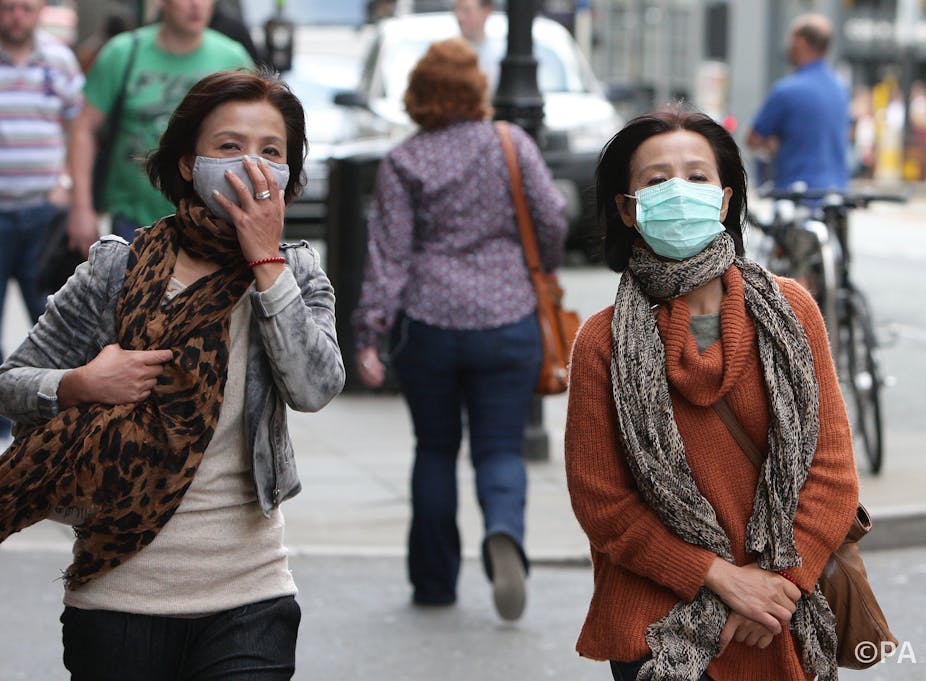The visibly high levels of pollution southern England is experiencing have drawn all of our attention to the ill-effects bad air quality can have on our health. Wherever we live, there is always a risk of exposure to air pollution, as the sources of environmental pollution can be varied.
When we think of pollution, we usually imagine the pollution encountered by burning large concentrations of fossil fuels, such as the coal fires that caused the London smog of the 1950s.
The modern form of pollution is now characterised by emissions from cars, particularly diesel, which not only emits noxious gases such as nitrogen dioxide and ozone, but also emits particulates of a range of sizes. Plus, there are emissions from factories and power plants.
While a combination of factors has made air pollution particularly bad (and visible) right now, it should be noted that we experience varying levels of it on a daily basis.
Deep into our lungs
The danger these particles pose to human health derives from the fact that these particles, particularly the smaller range particles termed PM2.5, can be inhaled deep into the lungs and react with the cells in the lung to cause inflammation and immunological responses. These can cause or contribute to various lung diseases such as asthma or chronic obstructive pulmonary diseases (COPD) like bronchitis or emphysema.
Though particles enter through the lungs, they contribute to a whole host of medical problems. Studies have implicated them in causing or contributing to heart disease, diabetes, chest infection, stroke and cancer. The exact reasons for this are still being determined, but it’s clear that these fine particles can cross cell barriers in the lungs into the blood stream. Here they can cause various effects such as thrombosis and reduce immune function.
A fundamental way these small particles can cause damage is related to a property termed oxidative stress. This is the propensity of these particles to bring oxygen or oxygen-containing molecules to various proteins and parts of our cells, which then causes malfunction and damage to its various components. Normal cells are designed to defend the body and combat this oxidative stress with antioxidant proteins.
But research has shown that susceptibility to the effects of particulate pollutants is linked to genetic abnormalities that reduce antioxidant proteins. Such individuals may need to take steps to improve or bolster their defences with antioxidant supplements.
Knock-on effects
Viral infections such as those causing the common cold or flu viruses that infect the lungs are also more common events. When these infections happen in people who suffer from asthma or COPD, they experience an increase in their symptoms often leading to an “attack” of their condition.
In fact, it is widely known that when the levels of air pollution are high, this is usually followed by an increase in the number of people with asthma and COPD who attend emergency departments of hospitals or who actually get admitted to hospital needing immediate treatment of their condition. Indeed, London Ambulance Service reported a 14% rise in 999 calls related to breathing difficulties, some of which would involve people with asthma or COPD.
Concerning respiratory disorders, high levels of particulate pollutants can certainly make asthma worse. To test this, we did a study where we took people suffering from asthma for a two hour walk up and down London’s busy Oxford Street, which has high levels of particulate pollution derived from buses running on diesel fuel.
We found their lung function was impaired, with inflammation occurring in their lungs. This degree of impairment was greatest when the level of the very small particles to which these people were exposed to were the highest. Certainly, patients with other conditions such as bronchitis or COPD are affected by particulate pollution as well and we are currently studying the specifics of this in a similar study.
The other effect of particulate pollution is the increased susceptibility to experiencing chest infections, both caused by viruses or bacteria. Part of this may be due to the effect of pollution in depressing the innate immune response. Air pollution might not always be visible like it is now, but breaches of international guidelines are quite routine (such that the UK is facing fines from the EU for them).
But, by continuing to study how air pollution affects people, we are hoping to better understand and identify ways to combat its effects on public health. In the meantime we can increase our antioxidant defences by eating more fruit and vegetables and avoid self-pollutants such as cigarette smoke.

